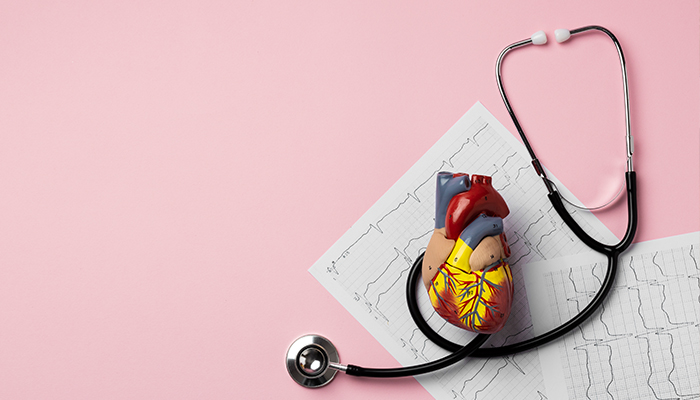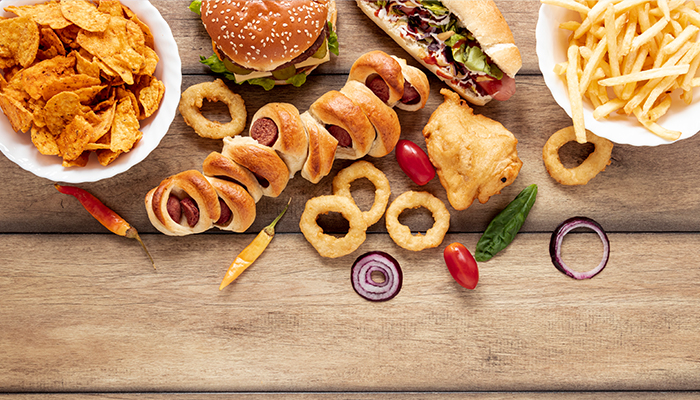Table of Contents
- What is Sodium, and Why Does it Matter?
- The Connection Between Sodium and Cardiovascular Health
- Recommended Sodium Intake Levels
- Hidden Sodium in Everyday Foods
- The Benefits of Low-Sodium Diets
- Heart-Friendly Diet Tips
- Tips to Reduce Salt in Meals
- Sodium and Cholesterol Connection
- Cooking with Less Sodium
- Reducing Sodium When Dining Out
- The Impact of High Salt Intake on the Heart
- The Role of Potassium in Sodium Balance
- Gradual Sodium Reduction for Sustainable Change
- Benefits Beyond the Heart
- Conclusion
Salt is often called the “silent saboteur” of heart health. While it adds flavour to your meals, excessive sodium can take a toll on your heart health. When it comes to your heart, one simple change can make a world of difference: eat less sodium for better heart health. By adopting a few practical habits, you can reap the benefits of low-sodium diets, ensuring a healthier and longer life.
What is Sodium, and Why Does it Matter?

Sodium, a vital mineral, helps regulate fluid balance and muscle function. However, excessive intake disrupts this balance, increasing blood pressure—a key risk factor for heart disease. The problem is that sodium is everywhere in everyday foods, so you must be mindful of sodium reduction for heart health.
The Connection Between Sodium and Cardiovascular Health

Understanding how sodium affects blood pressure is crucial. High sodium levels lead to water retention, which raises blood pressure and strains the heart. Over time, this can result in conditions like hypertension, strokes, or even heart failure. For this reason, lowering salt intake for a healthy heart is more than a recommendation—it’s a necessity.
Recommended Sodium Intake Levels
The World Health Organisation (WHO) recommends a daily sodium intake of no more than 2,000 mg (about one teaspoon of salt), and leading organisations agree. The American Heart Association (AHA) recommends even lower limits for people with hypertension or those who want to eat healthy for heart disease prevention — 1,500 mg.

Sodium isn’t just in the salt shaker, it hides in many everyday foods such as processed foods, bread, sauces, and even supposedly healthy choices like soups are all sources of sodium. Finding these sources is important when choosing low-sodium foods for heart health.
- Processed Meats: Sausages, bacon, and deli meats
- Condiments: Soy sauce, salad dressings, and ketchup
- Snack Foods: Chips, crackers, and salted nuts
The Benefits of Low-Sodium Diets

The benefits of a low-sodium diet are undeniable. Cutting back on salt can lower blood pressure, lower your risk of heart disease, and even help your kidneys. Moreover, less sodium consumption often improves overall dietary quality, encouraging more natural and fresh food choices.
Heart-Friendly Diet Tips
To follow a heart-friendly lifestyle, include these simple strategies:
- Opt for Fresh Produce: Fruits and vegetables are naturally low in sodium.
- Check Labels: Look for low-sodium or no-salt-added options when shopping.
- Use Salt Alternatives for Cooking: Replace salt with herbs, spices, or lemon juice to enhance flavour without health risks.
Tips to Reduce Salt in Meals

Transitioning to a low-sodium lifestyle doesn’t have to be bland. Here are some practical tips to reduce salt in meals:
- Rinse Canned Foods: Washing canned beans or vegetables can significantly reduce sodium.
- Avoid Pre-Packaged Seasonings: Many spice blends contain added salt; instead, create your mixes.
- Limit Fast Foods: Restaurant and fast food meals are often sodium-packed, so opt for home-cooked alternatives when possible.
Sodium and Cholesterol Connection
Cholesterol and sodium don’t seem to have much in common, but they often come together in processed foods. A sodium-rich diet can worsen high cholesterol risk, which is bad for your heart. Reducing salt for hypertension control indirectly supports cholesterol management as well.
Cooking with Less Sodium
When you cook at home, you control your sodium intake. Instead of salt, you can use garlic, paprika, or cumin to flavour your dishes without the salt. For a fun experiment, make meals exciting with vinegar, fresh herbs, and spice blends.
Reducing Sodium When Dining Out
When trying to watch sodium levels, dining out can be a challenge. To maintain cardiovascular health and sodium levels, request that no additional salt be added to your dishes, order grilled food over fried and ask for dressings or sauces on the side. Don’t be afraid to tell the staff about your dietary needs.
The Impact of High Salt Intake on the Heart

Excess salt can cause blood vessel hardening, which makes the heart do more work than it should. It raises the risk of heart attacks and strokes. Maintaining elasticity in arteries and ensuring efficient blood circulation is based on a diet to lower salt intake to help keep your heart healthy.
The Role of Potassium in Sodium Balance
Bananas, spinach, and sweet potatoes are all potassium-rich foods that can help counteract the effects of sodium. When added to your diet, they support sodium and cardiovascular health, helping your blood pressure remain balanced.
Gradual Sodium Reduction for Sustainable Change
A low-sodium diet can be difficult at first. But your taste buds will adjust over time. You can sustain these changes long-term by slowly decreasing your salt intake while learning tips to reduce salt in meals.
Benefits Beyond the Heart

The benefits of low-sodium diets primarily focus on cardiovascular health but also include better kidney function, less water retention and better bone density. It’s holistic, showing that small changes can make a huge difference in your health.
Conclusion
Reducing sodium is more than a diet tweak, it’s a lifestyle change that protects your heart and improves overall health. By making mindful choices and embracing fresh, flavourful ingredients, you can take control of your sodium intake and enjoy a healthier future. For more fitness tips and resources on healthy eating guidance, visit our blog—your gateway to a healthier lifestyle.

How much sodium should I consume daily?
The recommended limit is 2,000 mg per day, but for those with hypertension, 1,500 mg is advised.
How does potassium help with sodium balance?
Potassium helps neutralise sodium’s effects by reducing water retention and promoting better blood pressure.
What are some foods naturally low in sodium?
Fresh fruits, vegetables, unsalted nuts, and whole grains are naturally low-sodium options that benefit the heart.
Why is reducing sodium important for heart health?
Reducing sodium helps control blood pressure, lowers the risk of heart disease, and prevents conditions like strokes and kidney damage.
What are some alternatives to salt for flavouring food?
Herbs, spices, lemon juice, and garlic are excellent salt substitutes for enhancing flavours.
Can I eat out on a low-sodium diet?
Yes, but make informed choices by requesting low-sodium options, avoiding heavily processed items, and skipping salty condiments.


